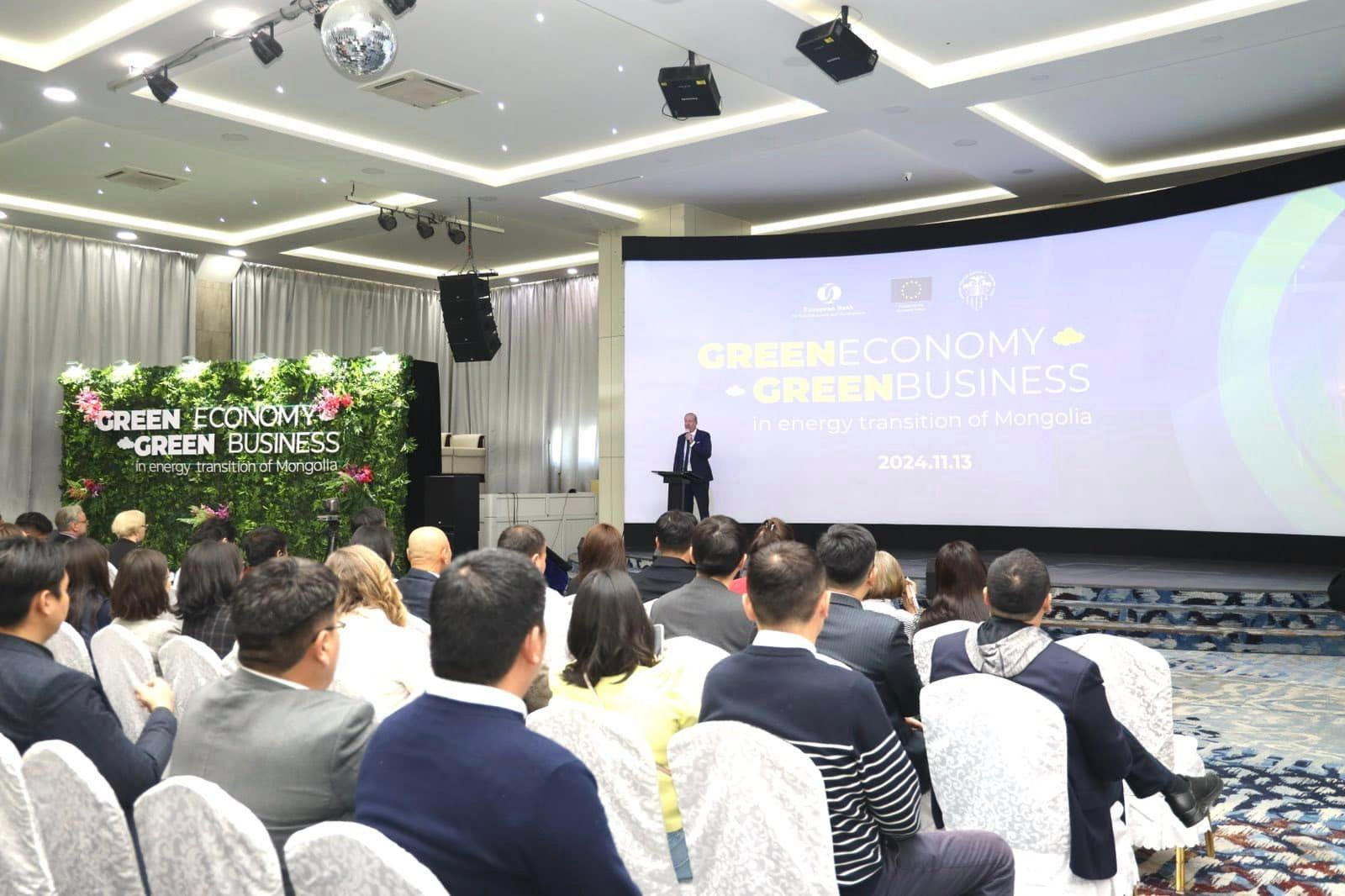
On November 13, the European Union, European Bank for Reconstruction and Development (EBRD), and the Mongolian National Chamber of Commerce and Industry (MNCCI) jointly organized an event titled “Green Economy, Green Business - Energy Transition”, focusing on Mongolia’s energy transition towards more sustainable practices. The event brought together key stakeholders, including EU Ambassador to Mongolia IIna Marciulionyte and resident representative of the EBRD in Mongolia Hannes Takacs.
In his opening speech, CEO of the MNCCI T.Duuren highlighted the importance of aligning Mongolia’s energy policies with international agreements such as the Paris Agreement. He emphasized the country’s commitment to reducing greenhouse gas emissions in line with its Nationally Determined Contribution targets and other strategic documents, such as the National Green Development Policy and government’s energy policy. According to a study by the Dayan Global Institute, Mongolia’s greenhouse gas emissions from coal-fired power plants are projected to reach approximately 56 million tons by 2035. However, the study also showed that by adopting renewable energy solutions and improving energy efficiency, Mongolia could halve its emissions by 2035.
He also noted the urgent need to increase the production and consumption of renewable energy and implement public-private partnership projects to ensure sustainable energy development. He also mentioned that in September 2023, the Energy Council was established under MNCCI to encourage greater private sector participation in the renewable energy sector.
In his remarks, Hannes Takacs discussed the bank’s efforts to support countries in reducing greenhouse gas emissions and fostering energy efficiency. He acknowledged that while increasing energy tariffs in Mongolia could strain household incomes, there is also significant potential for the development of renewable energy systems. Takacs pointed out that implementing energy efficiency measures could reduce Mongolia’s energy consumption by up to 25 percent, emphasizing the importance of renewable energy sources like solar, wind and hydropower, which Mongolia has considerable potential to harness but has not yet fully exploited. Takacs stressed that most of the country’s energy production still relies on coal, contributing significantly to its emissions.
A key part of the event was the panel discussion on “Greenhouse Gas Calculations, Sustainable Financing and Private Sector Support”. During the discussion, General Secretary of MNCCI S.Bayasgalan highlighted the role of private sector organizations in addressing greenhouse gas emissions and their responsibility in adopting energy-saving solutions. He emphasized that enterprises are increasingly focusing on renewable energy and energy-efficient technologies, which can lead to both environmental benefits and increased income by supplying surplus energy to the national grid.
The event also provided participants with detailed information on the EBRD’s green loan financing and green consulting services. Experts discussed how greenhouse gas emissions are calculated at the enterprise level, and the role of the private sector in implementing energy-saving solutions and sustainable financing models. Government policies and the private sector’s participation in green economy initiatives were key topics, with representatives from business associations, enterprises and energy companies in attendance to learn more about greenhouse gas calculations and how to engage with the green economy.